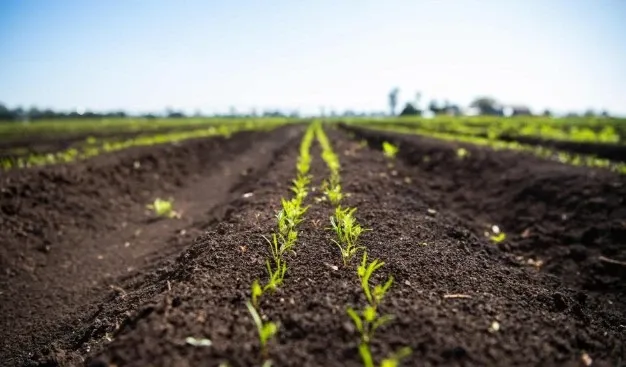Could Volcanic Rock Revolutionize Sustainable Farming in Australia?

Synopsis
Key Takeaways
- Crushed basalt can reduce soil acidity.
- It provides essential nutrients for crops.
- Farmers could save billions by using basalt instead of traditional liming materials.
- This method may help achieve net-zero emissions by 2050.
- It promotes sustainability in both agriculture and mining.
Caberra, July 14 (NationPress) Researchers from Australia are exploring an innovative farming method that may significantly reduce agricultural costs and mitigate climate emissions.
Utilizing crushed basalt, a plentiful and affordable volcanic rock byproduct derived from mining and construction, could potentially save Australian farmers substantial amounts each year while contributing to climate change efforts, as stated by experts from the University of South Australia (UniSA) on Monday.
A nationwide trial is currently assessing crushed basalt, priced at approximately 30 Australian dollars (19.69 US dollars) per ton, as a budget-friendly solution to decrease soil acidity, enhance crop yields, and sequester carbon—all achievable with conventional farming equipment and minimal additional costs, highlighted Binoy Sarkar, senior research fellow at UniSA's Future Industries Institute, who is leading the trial.
"Australian farmers incur nearly 1.2 billion Australian dollars (787 million US dollars) annually to combat soil acidification, relying on costly liming materials that also contribute to greenhouse gas emissions," Sarkar remarked.
Basalt not only alleviates soil acidity but also provides essential nutrients such as phosphorus, calcium, magnesium, and silicon, thereby reducing dependency on chemical fertilizers and increasing farm profitability, he noted.
According to the Xinhua news agency, Australia’s agricultural sector is responsible for almost 18 percent of the nation’s greenhouse gas emissions.
By substituting lime with basalt, these emissions could be significantly diminished, aiding in the country’s goal of achieving net-zero emissions by 2050. This initiative is a collaborative effort involving UniSA, James Cook University, the Tropical North Queensland Drought Hub, and industry stakeholders across two federally and privately funded projects.
The initiative also offers advantages for the mining sector, as it assigns new value to waste basalt as a soil amendment, the researchers indicated.
If proven effective, this technology could facilitate widespread adoption, allowing farmers and quarry operators to earn carbon credits while promoting sustainable practices. Sarkar added that ongoing trials are designed to foster trust and expedite nationwide implementation.










